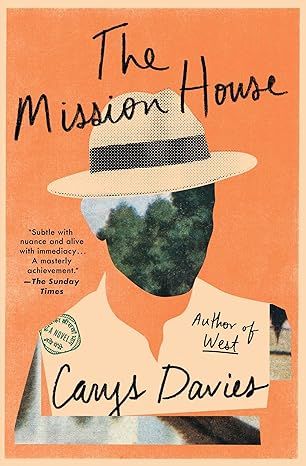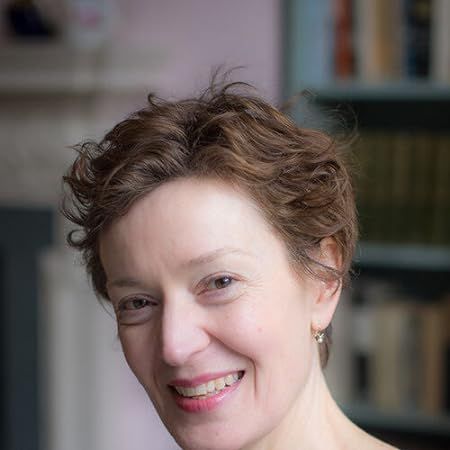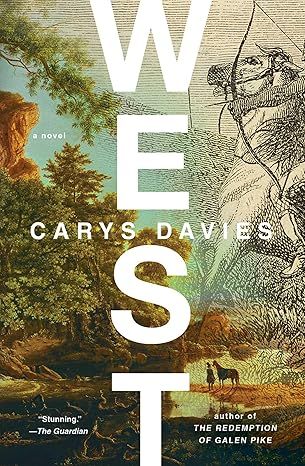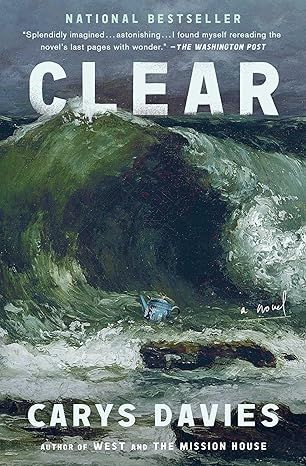The Mission House
4.1
-
754 ratings
The Sunday Times (London) Novel of the Year
“Luminous…a writer to watch—and to savor.” —Oprah Daily
From the award-winning author of West and The Redemption of Galen Pike, a “sublime” (The Toronto Star) and propulsive novel that follows an Englishman seeking refuge in a remote hill town in India who gets caught in the crossfire of local tensions.
In this “jewel of a novel” (The Observer), Hilary Byrd flees his demons and the dark undercurrents of contemporary life in England for a former British hill station in south India. Charmed by the foreignness of his new surroundings and by the familiarity of everything the British have left behind, he finds solace in life’s simple pleasures, travelling by rickshaw around the small town with his driver Jamshed and staying in a mission house beside the local presbytery where, after a chance meeting, the Padre and his adoptive daughter Priscilla take Hilary under their wing.
The Padre is concerned for Priscilla’s future, and as Hilary’s friendship with the young woman grows, he begins to wonder whether his purpose lies in this new relationship. But religious tensions are brewing and the mission house may not be the safe haven it seems.
A “skillful drama of well-meant misunderstandings and cultural divisions” (The Wall Street Journal), The Mission House boldly and imaginatively explores postcolonial ideas in a world fractured between faith and nonbelief, young and old, imperial past and nationalistic present. Tenderly subversive and meticulously crafted, it is a deeply human story of the wonders and terrors of connection in a modern world.
Kindle
$4.99
Available instantly
Audiobook
$0.00
with membership trial
Hardcover
$24.00
Paperback
$16.99
Ships from
Amazon.com
Payment
Secure transaction
ISBN-10
198214484X
ISBN-13
978-1982144845
Print length
272 pages
Language
English
Publisher
Scribner
Publication date
April 04, 2022
Dimensions
5.25 x 0.9 x 8 inches
Item weight
2.31 pounds
Product details
ASIN :
B08BZV28V1
File size :
27981 KB
Text-to-speech :
Enabled
Screen reader :
Supported
Enhanced typesetting :
Enabled
X-Ray :
Not Enabled
Word wise :
Enabled
Editorial reviews
“Luminous...Davies is a writer to watch--and to savor.” —Oprah.com, Best books of February
“A careful, quiet, skillful drama of well-meant misunderstandings and cultural divisions.” —Wall Street Journal
“Davies’ writing is sublime, taking us, in one instance, from a bomb explosion in London to India and saying something about life’s trajectory in a few lines.” —Toronto Star
“Carys Davies is unlike anyone else I have ever read. She can say in one sublime sentence what most of us struggle to come up with in a page. And The Mission House is another triumph.” —Rachel Joyce, author of Miss Benson's Beetle
“Carys Davies' enthralling fictions carry us across time and continents, and bring interior worlds to life.” —Claire Messud
“Lightly yet deftly crafted, hovering in tone somewhere between comedy, tragedy, and fable.” —Kirkus Reviews, STARRED review
“Davies creates a world that is magical yet daubed with menace. Nuanced characters, lush descriptions of South India, and an incisive look at class and religion make for a rich and layered novel.” —Booklist, STARRED review
“This captivating, nuanced tale balances a pervading sense of melancholy with pockets of wry humor. Davies’s masterly elegy is not to be missed.” —Publishers Weekly, STARRED review
“[Davies has] triumphed again…Subtle with nuance and alive with immediacy…A masterly achievement.” —The Sunday Times (UK)
“Brilliantly crafted...Having subtly prepared the ground, Davies finally springs the jaws of her plot, revealing, heartbreakingly, to us...what kind of story this really is.” —The Daily Mail (UK)
“Beautifully crafted.” —The Bookseller, Editor's Choice (UK)
“[A] fresh take on a familiar trope…Byrd is like so many others, from beatniks to empire loyalists, who form a connection not with real Indians but with a fantasy of India fashioned out of their own ideological prejudices and psychological needs. The Mission House truthfully reveals that the new realities of India will increasingly have their revenge on these tired old romances.” —The Guardian (UK)
“A delicately political tale.” —Metro (UK)
“Timeless..No words are wasted yet her conjuring of place and character are rich and vivid.” —The Times (UK)
“Unsparing and shocking…At first glance a simply told tale, The Mission House has a twisted brilliance that is mesmerizing.”—The Saturday Paper (Australia)
“A compelling read. Carys Davies has an amazing gift for summoning up a place, a situation, the characters. Her skill is that of brevity, nailing a personality with a few lines of dialogue, saying most by saying least.” —Penelope Lively, author of Moon Tiger
“An astonishingly assured and gripping piece of work and a worthy follow-up to West. Davies has a voice unlike any I’ve read: clean, otherworldly, eerily original, and capable of devastating effect.” —Julie Myerson, author of Something Might Happen
“I felt, reading this extraordinary novel, that the thorough oddity of its chief characters, their strange innocence, amounts to a revolt, on our behalf too, against the stupidity, cruelty, fanaticism and bigoted violence of the world in which they more or less successfully live their eccentric lives.” —David Constantine, author of In Another Country
“The Mission House is an absolute triumph. That rare type of book - resoundingly tender, and gently heart-wrenching. Carys Davies doesn't drop a sentence. I was deeply moved, and spellbound.” —Cynan Jones, author of The Dig
“Wonderfully written – with the simplicity of fairy tale, the heft of fable and all the human sadness and joy of misfits.” —Bernard MacLaverty, author of Midwinter Break
“Tender, playful, piercing, light-footed—this is an irresistible novel.” —Michelle de Kretser, author of Questions of Travel and The Hamilton Case
Read more
Sample
Chapter 1
As they climbed, the air cooled; by the time they were halfway up, it was chilly and fresh. “Thank God!” said Byrd, gulping the breeze from the open window, and when the Padre asked him, what brought him here, up into the hills? Byrd said—and it felt like the truth—“The weather.”
At Modern Stores he bought milk and Nescafé and a packet of Highfield Premium Tea, a very expensive jar of Hartley’s raspberry jam, two eggs in a paper bag, and what looked and smelled like a banana muffin, which he planned to eat in the morning for his breakfast.
The Padre had told him about a shortcut that would bring him up out of the hectic town to the presbytery on the hill above the church, and from the high pavement outside Modern Stores he could see the church’s white spire, pointing like a compass needle into the misty sky above the messy pattern of tiled and corrugated roofs and the floaty, lightly moving tops of the trees.
“There it is,” he said aloud, because it was reassuring to be able to see exactly where he was going. Carrying his shopping and his straw hat and pulling his suitcase over the broken surface of the road, he moved towards it until he came to the broad concrete steps the Padre had described. Up he went. On his left a group of women in bright clothes hacked at the ground with small sharp tools that flashed in the weak sunlight. Then, just as the Padre had told him they would, the steps delivered him out onto a steep road above the town at a gateless opening surrounded by thick vegetation; a crooked sign on the right-hand side said dog is on duty.
Byrd walked in under a canopy of dripping trees along a red earth driveway puddled with water.
There was no sign of any dog, or the Padre. The bungalow was there, though, in the garden next to the presbytery, as the Padre had promised, the door open invitingly.
How tired he was!
How exhausted after his weeks wandering about down on the plains: the temples and the dusty museums, the endless hotel rooms, the uncomfortable nights spent on buses and trains, the awful clamor of the auto rickshaw drivers, the intolerable heat.
At the beginning of his travels, it had all gone well enough. At his hotel next to the Danish fort in Tranquebar, a pleasant breeze had blown in off the Bay of Bengal. In the middle of the night he’d looked out of his window to see the lights of fishing boats strung out across the water, like fallen stars. In the morning, waiters had arrived at his table in crisp white jackets and scarlet headdresses and his tea had come in a silver pot. His bedroom had overflowed with sequined bolsters and gorgeous rugs, and when he’d strolled along the shore past the fishermen mending their fine white nets, they’d seemed to be sitting cross-legged in a bank of cloud.
But the hotel was more expensive than he could afford (more expensive than he thought a hotel in this country should reasonably be) and he’d moved up the coast to Pondicherry, but the Pondicherry hotels had been expensive too, and he’d been obliged to move on. For a month he’d shuttled between the cities of the interior, and everywhere he went, he found them alive with unbearable numbers of people and cars and scooters, bright lights and noise, horns and clatter and an endless beeping, the roar of engines, steam and smoke and diesel, with street vendors thronging the pavements in front of phone shops and newspaper kiosks, calling out to him about their vegetables and their fruit; he’d fought his way past men in flowing robes and men in white-collared shirts and dark trousers carrying briefcases, women in blue jeans and women in glittering saris, children in polished shoes and no shoes at all. It was overwhelming. The crippled beggars repulsed and terrified him, and he’d hurried past them with his suitcase, praying they would not reach out and catch hold of his ankle or the hem of his shorts. On top of everything, there’d been the heat.
But he was here now, and though there’d been clamor and hustle as he’d made his way through the town, it seemed to him like a gentler version of everything he’d encountered down on the plains, and best of all, he was no longer sweating.
In the cool of the evening he walked through the small, square rooms of the little bungalow: a sitting room with a fireplace and an etching of a Scottish loch and a neat, round table, in the corner a green fridge; a veranda-like room closed in with windows, containing a desk and a huge extraordinary chair like a dentist’s; a bedroom with a three-quarter bed, an embroidered placard on the wall above it that said I will be your Shield, your High Tower, the Horn of your Salvation; a bathroom with a toilet and a sink and a big pink plastic bucket like a dustbin; a kitchen with a blue propane bottle and a two-burner stove, another sink, and shelves lined with clean newspaper. Ideal Pigeon, it said in black script on the front of the stove’s white enamel.
“Well, isn’t this nice?” he said aloud.
He boiled the eggs and made himself a cup of tea. He unpacked his things and stowed his suitcase under the bed. He walked through all the rooms again, closing the open windows and drawing all the curtains. It was hard to imagine anything more cozy and snug.
In the kitchen he put a pan of water on to boil, then two more, until there was enough hot water in the pink bucket in his bathroom for him to stand in it and wash himself. There was still a crust of salt around his middle from the sweat that had collected there, in the heat of the morning, and dried when the train reached the cool air of the mountains. It gave him such pleasure to see it dissolve and disappear beneath his wet sponge. And then there was the novelty of putting on his pajamas, which he hadn’t worn since leaving home.
It was late when he noticed the other man’s clothes, hanging limply from a forked hook on the back of the bedroom door. The door was open against the wall, and when he closed it, there they were: a red-and-blue plaid shirt and a pair of dark, many-pocketed trousers; a hat with earflaps and a pom-pom.
It amazed him, what he felt when he saw them—how much he would have preferred it if they weren’t there; how much, in the few short hours since he’d arrived, he’d come to think of the place as his own.
He pushed the door back against the wall so that the clothes of the absent missionary were, as they’d been before, out of sight.
On his pillow, a hot water bottle lay in a woolen cover, and he thought about boiling another pan to fill it, but he was so very tired now, and instead he climbed into the three-quarter bed and let his head sink into the cool pillow. For a little while, he read, but soon his eyes began to close, and his last thought before he slept was how lucky it was, that he and the Padre had boarded the same carriage at Mettupalayam; how lucky that they’d fallen into conversation after his joyous Thank God! when, halfway up, the air had cooled; what a stroke of good fortune it was, that this little bungalow was lying here in this pretty, if slightly neglected and overgrown garden, empty and available.
Read more
About the authors
Carys Davies
www.carysdavies.net
Carys Davies’s debut novel West (2018) was shortlisted for the Rathbones Folio Prize, runner up for the Society of Authors' McKitterick Prize, and winner of the Wales Book of the Year for Fiction. Her second novel The Mission House was first published in the UK in 2020 where it was The Sunday Times 2020 Novel of the Year.
She is also the author of two collections of short stories, Some New Ambush and The Redemption of Galen Pike, which won the 2015 Frank O'Connor International Short Story Award and the 2015 Jerwood Fiction Uncovered Prize. She is the recipient of the Royal Society of Literature's V.S. Pritchett Prize, the Society of Authors' Olive Cook Short Story Award, a Northern Writers’ Award, a Cullman Fellowship at the New York Public Library, and is a member of the Folio Academy. Her fiction has been translated into nine languages.
Born in Wales, she grew up there and in the Midlands, lived and worked for twelve years in New York and Chicago, and now lives in Edinburgh.
Read more
Reviews
Customer reviews
4.1 out of 5
754 global ratings
Amazon Customer
5
True State of India Exposed
Reviewed in the United States on February 13, 2024
Verified Purchase
Hot wrenchingly beautiful.
Logan D Browning
5
One of the finest prose stylists writing today.
Reviewed in the United States on September 16, 2021
Verified Purchase
Every word seems as carefully chosen as in stories by Eudora Welty or novels by E. M. Forster.
Amazon Customer
5
A great read - have now purchased another book by the same author
Reviewed in the United States on April 30, 2021
Verified Purchase
Very well written and compelling story
kathleen g
5
excellent read
Reviewed in the United States on February 16, 2021
This is a quiet novel that slowly ramps up a sense of impending doom. Hilary Byrd left the UK after things went sidewise for him- his story slowly, and somewhat incompletely, trickles out over the course of the novel. He thought India would be the place for him but was overwhelmed until one day he heard of a small town in the hills- and that's where the story is set. He moves into a mission house vacated for the time being by a Canadian missionary and shares his time with the Padre and Priscilla, a young orphan with physical differences. And with Jamshed, who drives him about town. The Padre's announcement that he wants to find a husband for Priscilla sets Byrd into motion. What he doesn't know - nor does Padre- is that Priscilla has a relationship with Ravi, Jamshed's nephew who wants to be a country western singer. These are terrific characters, each of whom shares their perspective. Davies does a good job with Byrd, in particular, as he sways back and forth. The ending didn't work for me (it felt inconsistent although there are hints along the way that this could happen) (no spoilers) but that doesn't mean I enjoyed the novel any less. I was a fan of West and this one cemented her in my thoughts as an author I'll look for again. Thanks to Edelweiss for the ARC. Excellent read.
Read more
2 people found this helpful
DKW
5
Beautifully written story
Reviewed in the United States on February 21, 2021
The Mission House is a small, lovely story with both delicate humor and heartbreak, both gentleness and violence, both keen perception and misunderstanding between its characters.
Set in a remote outpost of the former British Empire in 21st-century India, the book's cast includes a British man recovering from a breakdown; an elderly Indian who is a Protestant priest; his young housekeeper who is an eager student and has a defining physical handicap; a self-educated rickshaw driver, and his nephew, who is enamored of America's country and western music.
What is brilliant about the book are 1) the mastery of the setting, in the cool highlands of India; 2) the tapestry of interactions woven between the five main characters. Each is highly intelligent and curious about the others. Each has pronounced views about religious faith, and 3) the transcendent writing style, where the craft was simply invisible, wedded to the story line.
Priscilla, the housekeeper, summarizes her "much ado about nothing" attitude toward religion: "They were all of them, it seemed to her -- the Mormon boys and the Hindu temples and St. Peters and all the rest of them -- the same, like so many shops or market stalls or street traders, all of them hustling for business, all trying to make themselves more appealing than the last one or the next one."
I loved this book. I loved that the politics were so subtle.
Thanks to NetGalley and Scribner for an advance readers copy.
Read more
Top Carys Davies titles
View allSimilar Books
Best Sellers
View all
The Tuscan Child
4.2
-
100,022
$8.39

The Thursday Murder Club: A Novel (A Thursday Murder Club Mystery)
4.3
-
155,575
$6.33

Sapiens: A Brief History of Humankind
4.6
-
140,302
$13.49

The Butterfly Garden (The Collector, 1)
4.3
-
88,556
$9.59

Things We Hide from the Light (Knockemout Series, 2)
4.4
-
94,890
$11.66

The Last Thing He Told Me: A Novel
4.3
-
154,085
$2.99

The Perfect Marriage: A Completely Gripping Psychological Suspense
4.3
-
143,196
$9.47

The Coworker
4.1
-
80,003
$13.48

First Lie Wins: A Novel (Random House Large Print)
4.3
-
54,062
$14.99

Mile High (Windy City Series Book 1)
4.4
-
59,745
$16.19

Layla
4.2
-
107,613
$8.99

The Locked Door
4.4
-
94,673
$8.53









